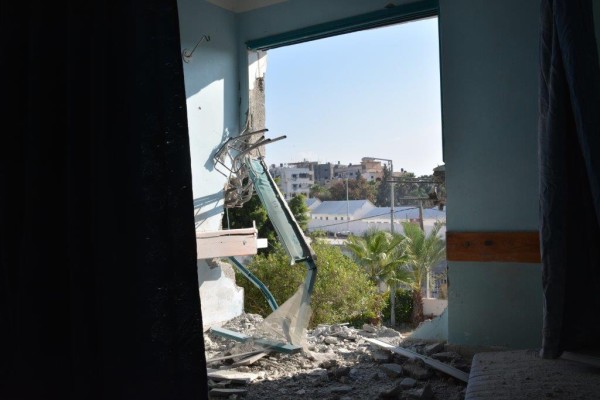Category: Reports
-
Israeli forces invade Azzun and use Palestinian civilians as human shields
24th July 2014 | International Solidarity Movement, Nablus team | Azzun, Occupied Palestine On Monday, July 21st, Israeli forces used Palestinian civilians as human shields in the village of Azzun, a village west of the city of Nablus. On most evenings several Israeli jeeps are stationed just outside the Azzun’s north gate. At 10 o’clock in the…
-
A story from Balata refugee camp
22nd July 2014 | International Solidarity Movement, Nablus team | Balata, Occupied Palestine The Abu Leel family are refugees, who fled from Haifa to Balata refugee camp in Nablus in 1948. Asma Alshmeer gave birth to 10 healthy children, five of whom have been killed by the Israeli military. The first was killed when he…
-
Young man injured by Israel army live ammunition in invasion of Iraq Bureen
21st July 2014 | International Solidarity Movement, Nablus team | Iraq Bureen, Occupied Palestine On Thursday, July 17, 19 year old Mohamad Yousef Kadan was shot by an Israeli soldier in Iraq Bureen, near Nablus in the northern half of the West Bank, during an army invasion into the village. Mohamad was playing football with…



